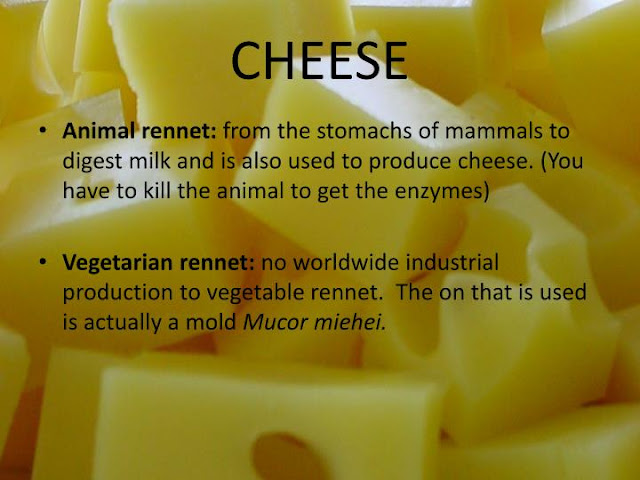What Makes Cheese Rennet Vegan?
There are two alternatives to animal rennet that can make cheese rennet vegan. There is vegetable rennet, which is made from enzymes found in safflower, melon, fig leaves or thistles, and there is microbial rennet, which is made from mold cultures or bacteria or are created artificially in a lab. These enzymes work to separate the milk in a similar fashion to how yogurt is made. More specifically, they digest the sugars in the milk and produce lactic acid, which makes the milk curdle and solidify, just like animal rennet does.
All types of vegan rennet are usually listed on product labels as either enzymes or vegetable enzymes, without any further detail. The words vegetable enzymes are a guarantee that the rennet is vegan, but enzymes is generic enough term that it can refer to both animal and vegan sources. It requires the diligent vegetarian or vegan to make a call to the manufacturer’s customer service line to double check.
Some companies will use the term vegetable rennet, although it is not that common. It’s interesting to note that vegan rennet is not rennet at all, since the word rennet refers to an animal’s stomach lining. Manufacturers have just adopted the term to denote the similar purpose.
Cheese Rennet...
What Makes Cheese Rennet Vegan? Video




